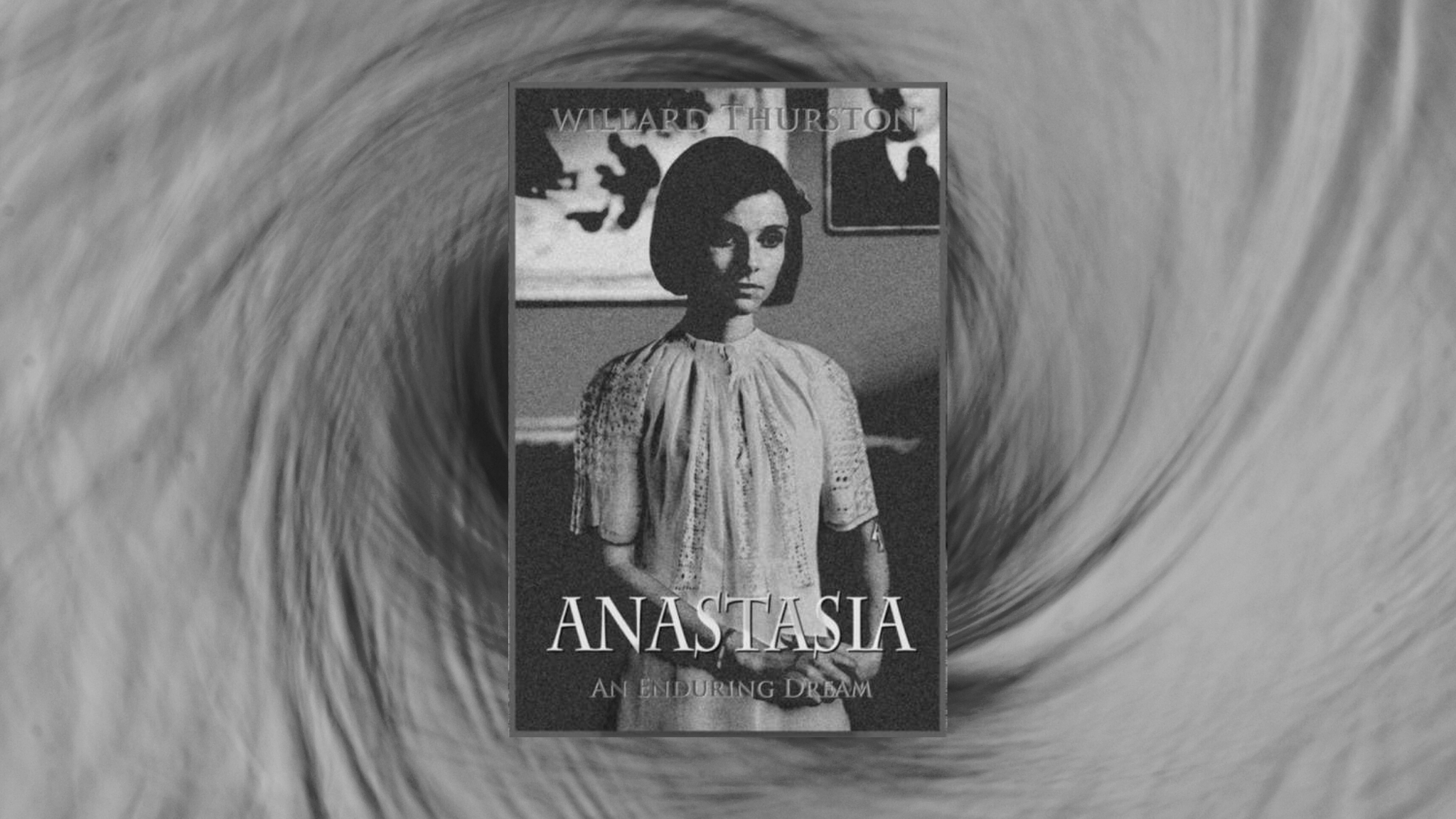Anastasia by Willard Thurston
What's It About?
A talented Russian spy striving to free herself from the ever-tightening Gordian knot she finds herself at the center of.Identity and independence are inextricably linked in Willard Thurston’s newly illustrated edition of Anastasia, a study of a talented Russian spy striving to free herself from the ever-tightening Gordian knot she finds herself at the center of.
We first meet Anna Anastasia Karolovna Kniaźnin as a promising young Soviet schoolgirl being groomed for service by old-school GRU agent Vassily Sergeevich Ablesimov. The daughter of a Russian soldier killed in Afghanistan and a Finnish-born dissident, Anastasia will be familiar to Thurston readers as the half-sister of Zoya Yakovlena Stolbanov in the novel Apsara (our review here).
Indeed, Anastasia can be read as a companion novel to Apsara, as several incidents in the latter appear to occur in parallel to the timeline of the former. And while Apsara focuses on Zoya and her long-lost twin Catherine Whyte (nee Masha Kusnetsova Stolbanov), here Zoya plays a sort of MacGuffin as the impetus for ever-intensifying scrutiny of her half-sister Anastasia’s actions and loyalties.
You see, Zoya is rumored to have escaped into America bearing some embarrassing secrets about the dalliances of a certain high-ranking Russian official — a secret that could get out were it to be shared with her half-sister, who is deep undercover in the U.S. under the alias Dr. Frieda Van Eerden. What’s more alarming is that “Frieda” has recently gone silent, having missed several information drops to her handlers. The timing is suspicious, and Vassily is sent to investigate his former pupil. What he doesn’t suspect is that the situation is far thornier.
Rogue Spy’s Freedom
Up until recently, Frieda had been working as an engineer at the Paleomena research complex on a sentient computer named “Abler” that can, among other things, predict the future — technology that the Russians are eager to get their hands on. But lately, she and some of her colleagues have become increasingly disenfranchised by the Paleomena corporation’s plans for profiting off the secret AI’s premonitions. In her view, such technology should be available for all, a liberal attitude that Vassily — not to mention Paleomena’s top brass — discover to their dismay. Frieda has gone rogue.
She knows the danger. The GRU will be out to “exfiltrate” her. Vassily can only protect her to a limited extent (though he valiantly does his best). What she doesn’t realize, though, is that the GRU will only be half of her worries. The Paleomena corporation won’t let her go so easily either, and it will take all of her ingenuity to evade both and secure her freedom. It’s a freedom that turns out to be a prison of its own, however, as she begins a new life as Anna Rana Sambara Vajra Licchavi, wife of an eccentric and powerful billionaire whose jealous passions threaten her autonomy and self-identity in new and ominous ways.
In the perilous and unforeseen turns Anastasia’s fortunes take, she learns that freedom can’t be found by wits or wealth. Recovering her self-identity, now buried layers deep under the aliases she assumes and the roles she plays within them, is the key to that freedom. And with the love of a compassionate, patient and committed equal, she can finally find herself again in a life of her own choosing.
More Than Complex Intrigue
Anastasia is by turns a complex espionage novel, a romance, and an epic whirlpool of a tale that pulls the many characters that orbit Anastasia’s world — however tenuous their acquaintance — into eddying subplots that alter the trajectory of each other in unexpected ways. There’s the Wunderkind Arnold Storrier, promising physicist turned composer, and his feminist biographer, Gloria Leibowitz. There’s also the repressed and conflicted Paloeomena executive Angus Dowd and his capable secretary, Daphne, and a photographer whose latest commission entangles him in the world of corporate deception and manipulation. There are other romances, other adventures, other intrigues to be explored in the pages of Anastasia.
It all seems unrelated until it isn’t, and Thurston does a fine job of bringing these characters to bear on each other’s lives as well as drawing parallels and contrasts that explore his themes of the search for self, the snares of desire, and the struggle for absolution, restitution or retribution. These, of course, are melded with Thurston’s enduring preoccupations with media and art, politics and philosophy, depravity and morality.
Thurston’s writing is full of his usual erudite wit, eclectic vocabulary, entertaining diversions, and endearing (and often recurring) characters. We’ve heard that another companion novel is in the works. I, for one, am eager to see where this corridor of the Thurstonverse goes.
—
This is a pre-publication review; meanwhile, Anastasia: An Enduring Dream is available for free on the author’s website.
—
About Willard Thurston:
Willard Thurston lives in British Columbia. One of the Sixties “floaters” … eventually a photographer and printer (retail advertising), illustrator and writer. He holds a degree in English and Early European History from the University of British Columbia.





